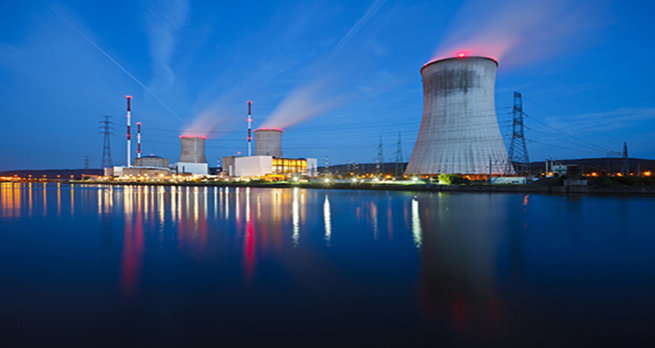Home » Course Layouts » Free Course Layout Udemy
Discover the science behind nuclear energy and its role in energy provision in the past, present and future. With the need to reduce carbon emissions around the world, the way we generate our power has to change and nuclear energy is back on the political agenda. But do you know your fission from your fusion? Would you like the knowledge to make an informed decision?
0
21
English
English [CC]
- Learn basic syntax that can apply to any language.
- Learn what is a programming language and the basic concepts for beginners.
- Understand what is Javascript in it's truest form.
- Know the basic syntax of Javascript.
- Know some hidden quirks in Javascript.
Description
Course Overview
The question of whether we should get electricity from nuclear power remains a tough one for governments all over the world. While it offers a sustainable, low carbon and secure way of meeting our energy needs, big questions surround the economic viability, the perceived dangers and the public acceptability associated with power plant operations and radioactive wastes.
Nuclear power stations currently generate around 18 per cent of the UK's electricity production. The majority of the current reactors are scheduled to be decommissioned by 2023 and we could be facing an energy 'gap'.
This free course, The science of nuclear energy, will delve into the science behind nuclear power and explain what happens inside a nuclear reactor and what it means for an element to be radioactive. It will explore some of the risks of producing nuclear power and examine the arguments for and against including it in future energy planning as well as looking at other potential future solutions.
The course does not assume any prior knowledge of nuclear energy and can be enjoyed by anyone interested in science and becoming more informed of energy choices.
Course learning outcomes
After studying this course, you should be able to:-
understand the physics of nuclear fusion
-
understand how a nuclear power station works
-
weigh up and debate potential solutions to the problems associated with nuclear power
-
assess the energy needs today and the part that nuclear power has to play
-
identify current and future technologies.
Course content
-
- Introduction 00:10:00
- 1.1 The structure of atoms 00:45:00
- 1.1.1 Isotopes 00:35:00
- 1.1.2 Common isotopes 00:45:00
- 1.1.3 Structure of atoms 00:25:00
- 1.1.4 The nature of the nucleus 00:25:00
- 1.2 Radioactive atoms 00:45:00
- 1.2.2 Alpha, beta and gamma radiation 00:50:00
- 1.2.3 Doses of radiation 00:40:00
- 1.2.4 Precise doses of radiation 00:25:00
- 1.2.5 Some uses of radioactivity 00:55:00
- 1.2.6 Myths of radiation 00:35:00
- 1.2.7 Ideas about radioactivity 00:25:00
- 1.3 Nuclear processes 00:25:00
- 1.3.1 Uranium 00:35:00
- 1.3.2 Isotope trumps! 00:35:00
- 1.3.3 What is fission? 00:30:00
- 1.3.4 The chain reaction 00:40:00
- 1.3.5 Energy from fission 00:50:00
- 1.3.6 The early days of fission 00:35:00
- Week 1 Quiz 00:20:00
- 1.5 Summary of Week 1 00:15:00
-
- 2.1 Energy and power 00:55:00
- 2.1.1 What uses most energy in the home? 00:25:00
- 2.1.2 Human power station 01:00:00
- 2.1.3 Generating electricity 00:55:00
- 2.1.4 Energy sources 01:00:00
- 2.1.5 Running the National Grid 00:25:00
- 2.1.6 The National Grid 00:20:00
- 2.1.6 The National Grid 00:20:00
- 2.1.7 Peak output 00:30:00
- 2.2 Components of a nuclear power station 01:20:00
- 2.2.1 Looking inside a nuclear reactor 00:25:00
- 2.2.2 Inside a nuclear reactor 00:30:00
- 2.2.3 Types of nuclear reactor 00:45:00
- 2.2.4 The world’s nuclear power stations 00:40:00
- 2.3 Waste produced by nuclear power 00:40:00
- 2.3.1 Half-life 01:05:00
- 2.3.2 Types of radioactive waste 01:05:00
- 2.3.3 Decommissioning at Dounreay 00:55:00
- 2.3.4 What can be done with nuclear waste? 00:35:00
- 2.3.5 Solution: reuse 00:40:00
- 2.3.6 Solution: transmutation 00:45:00
- 2.3.7 Solution: deep geological repository 00:55:00
- 2.3.8 Case study: Yucca mountain 00:40:00
- Quiz for week 2 00:30:00
- 2.5 Summary of Week 2 00:10:00
- References 00:10:00
- 3.1 Atomic men! 00:30:00
- 3.1.1 What can go wrong in a nuclear power station? 00:40:00
- 3.1.2 Accidents at Three Mile Island and Chernobyl 00:30:00
- 3.1.3 Errors 00:05:00
- 3.1.4 Clean-up at Three Mile Island and Chernobyl 00:20:00
- 3.2 The Fukushima Daiichi reactor 00:20:00
- 3.2.1 What caused the meltdown at Fukushima? 00:35:00
- 3.2.2 Hydrogen explosions demonstration 00:40:00
- 3.2.3 Inside the Daiichi power plant 00:25:00
- 3.2.4 Exclusion zone 00:25:00
- 3.2.5 Clean-up of Iitate 00:30:00
- 3.2.6 Fukushima level 7 00:30:00
- 3.2.7 Fukushima – six months later 00:45:00
- 3.3 Fukushima – water issues 00:10:00
- 3.3.1 Fukushima – ongoing challenges 00:30:00
- 3.3.3 Chernobyl today – the reactor 00:25:00
- 3.3.4 Chernobyl today – exclusion zone 00:40:00
- 3.3.5 Chernobyl today – health effects 00:50:00
- 3.3.6 What have we learned? 00:30:00
- Quiz for Week 3 00:10:00
- 3.5 Summary of Week 3 00:10:00
- What is an atom? 00:30:00
- Isotopes and Atomic Mass 00:30:00
- Test 00:50:00
N.A
- 5 stars0
- 4 stars0
- 3 stars0
- 2 stars0
- 1 stars0
No Reviews found for this course.
Instructor
OpenCoursa
Accessible Education for Everyone
5
5
6
24772
4637
We are an educational and skills marketplace to accommodate the needs of skills enhancement and free equal education across the globe to the millions. We are bringing courses and trainings every single day for our users. We welcome everyone woth all ages, all background to learn. There is so much available to learn and deliver to the people.
Explore Free Courses
Access valuable knowledge without any cost.
{"title":"","show_title":"0","post_type":"course","taxonomy":"course-cat","term":"engineering-skills,health-and-safety","post_ids":"","course_style":"free","featured_style":"course6","masonry":"","grid_columns":"clear4 col-md-3","column_width":"268","gutter":"30","grid_number":"4","infinite":"","pagination":"","grid_excerpt_length":"20","grid_link":"1","grid_search":"0","course_type":"","css_class":"","container_css":"","custom_css":""}










